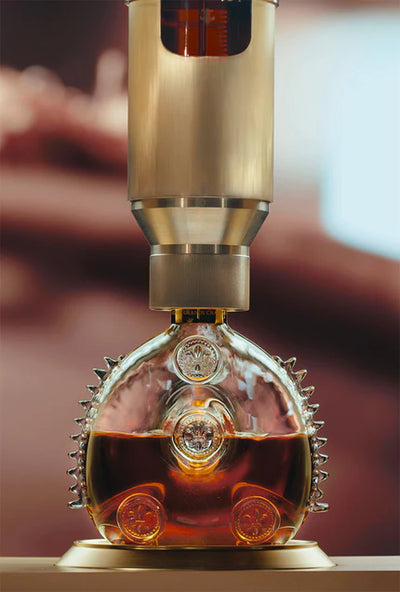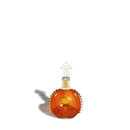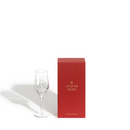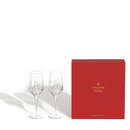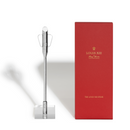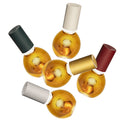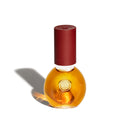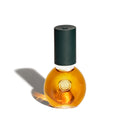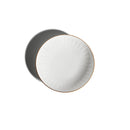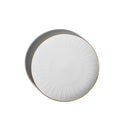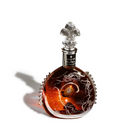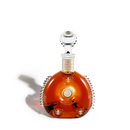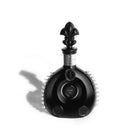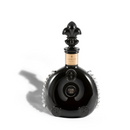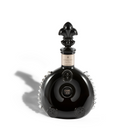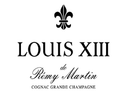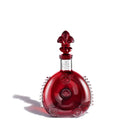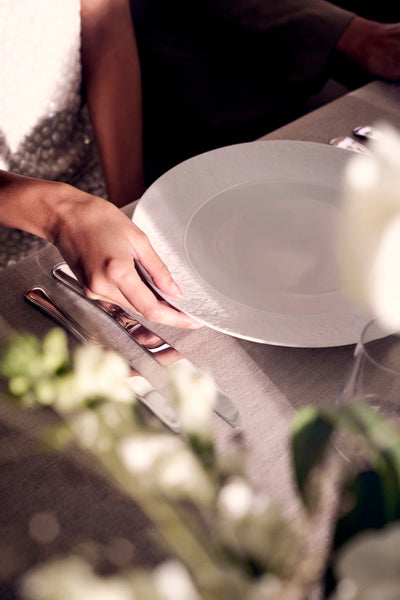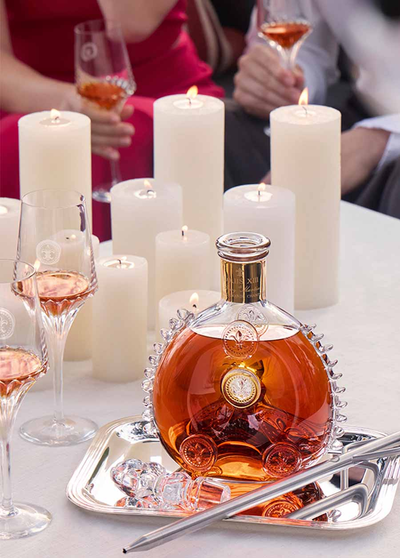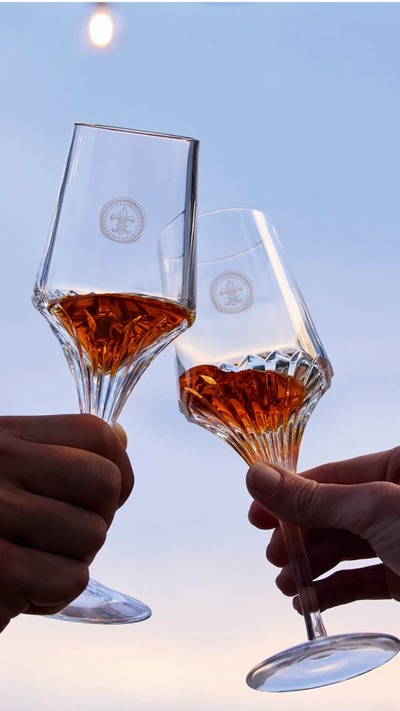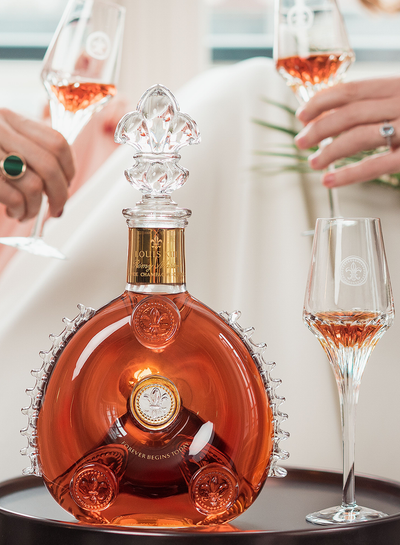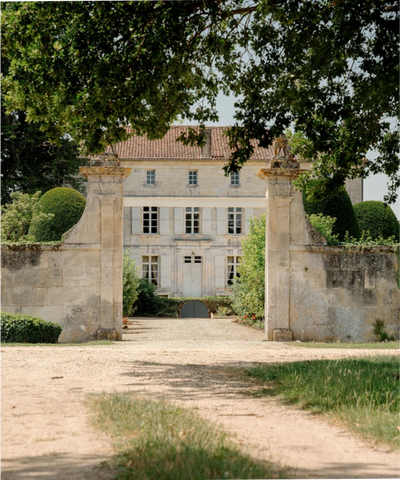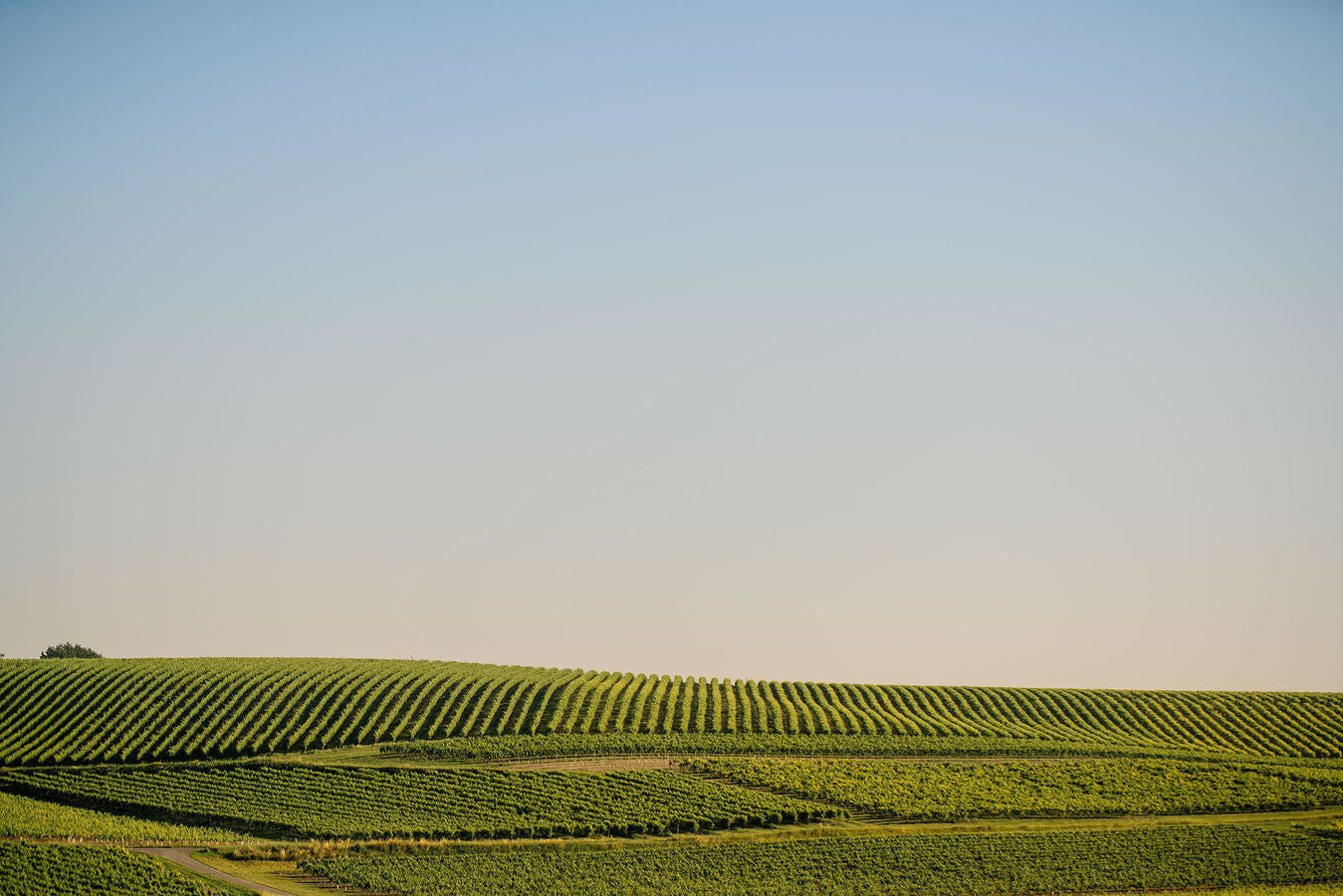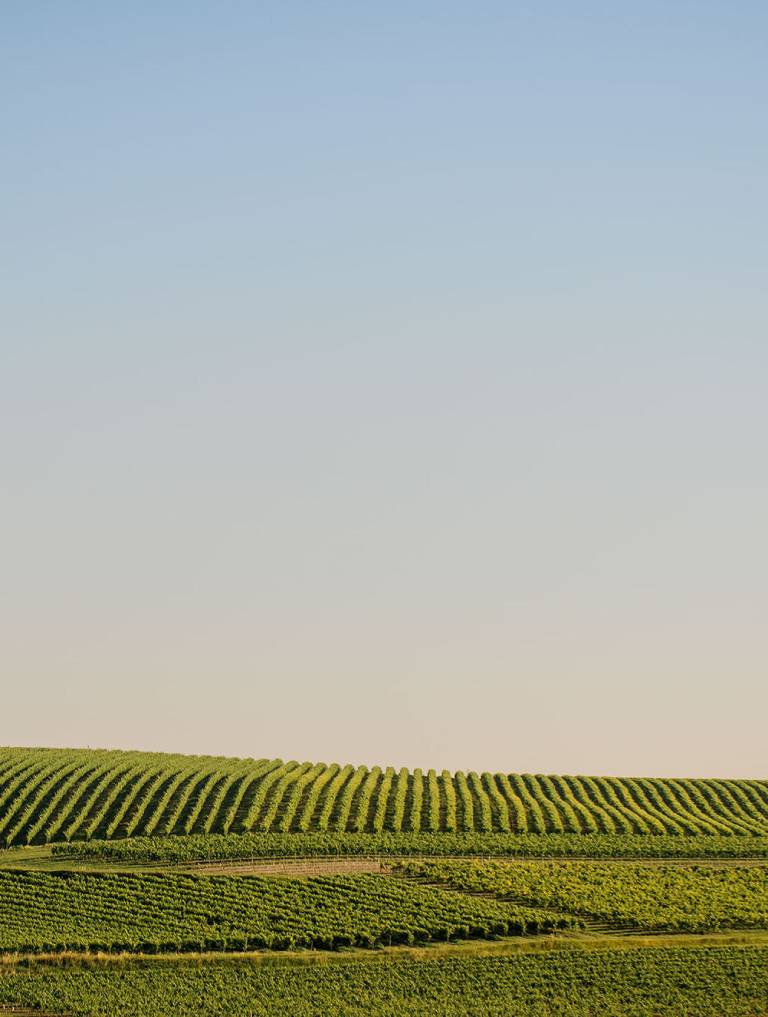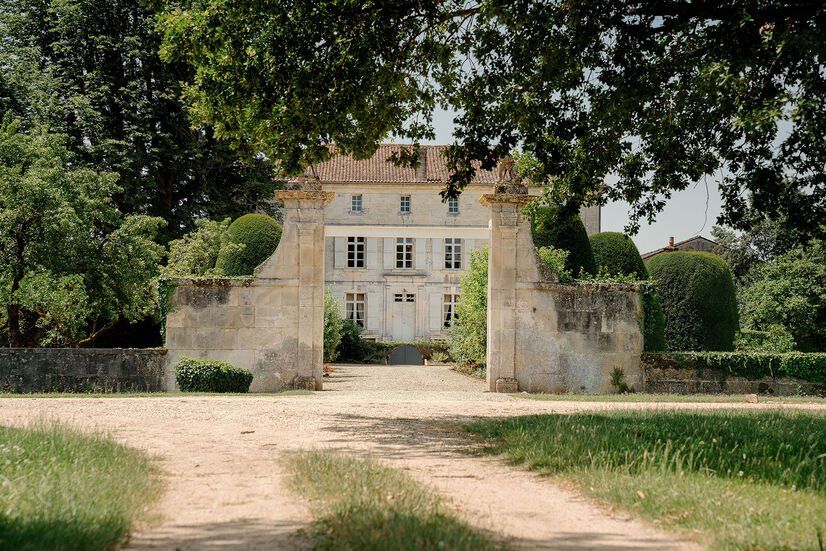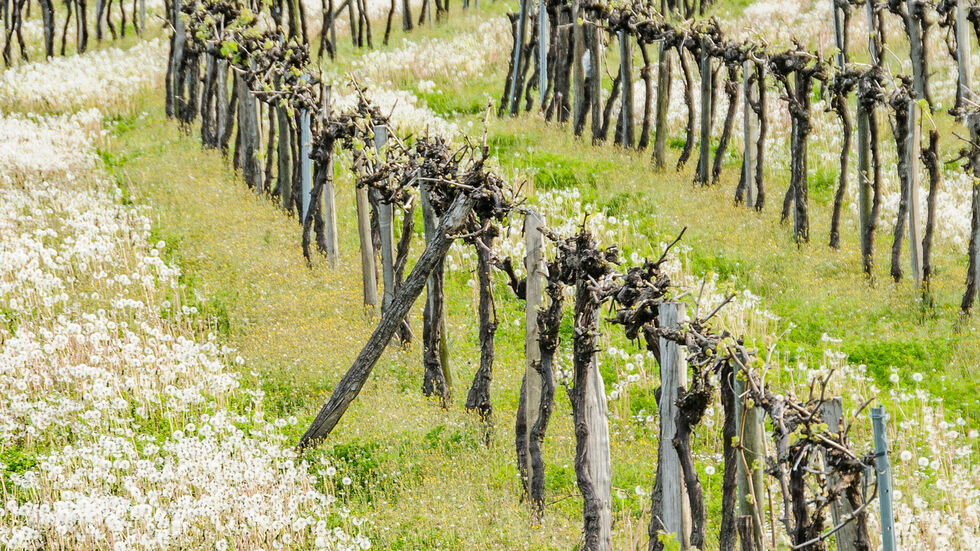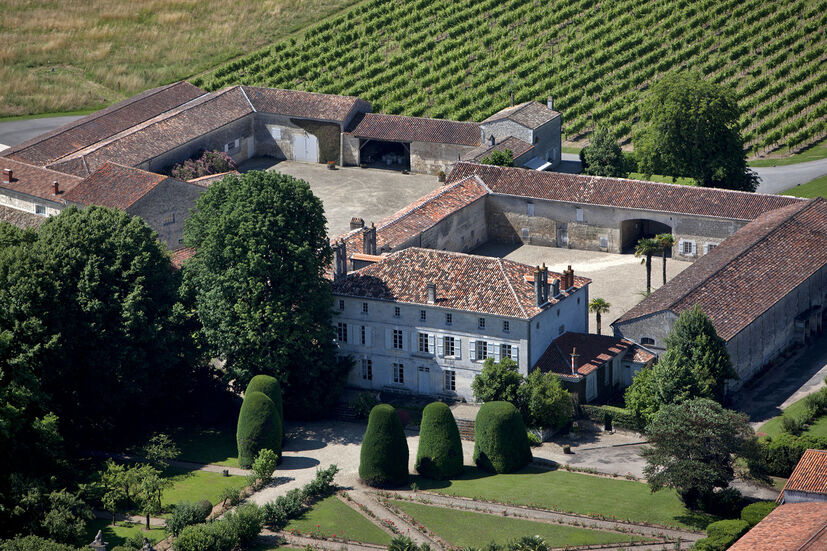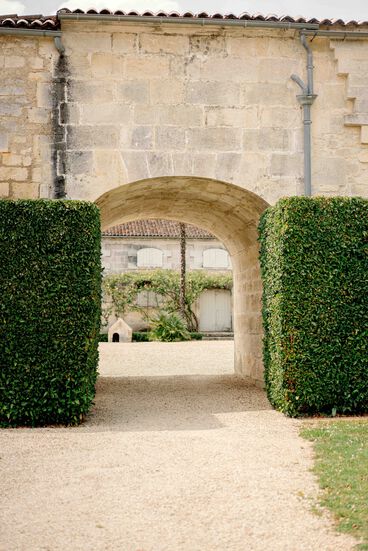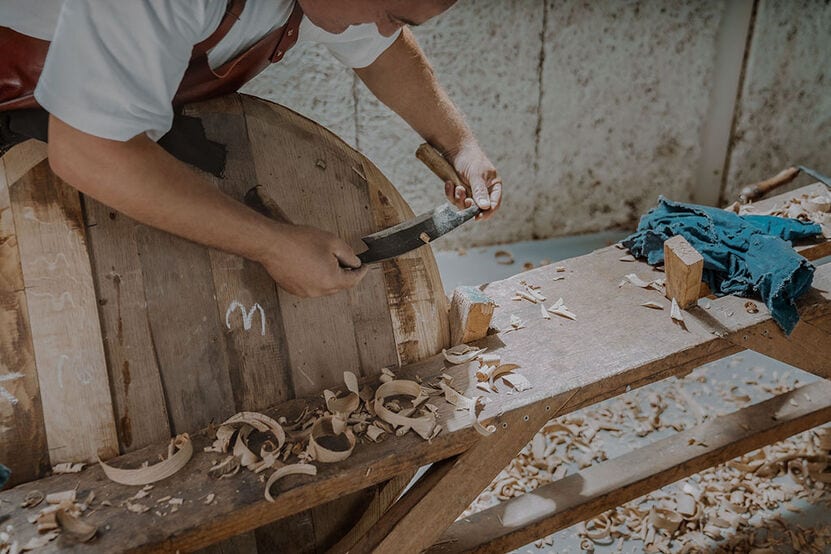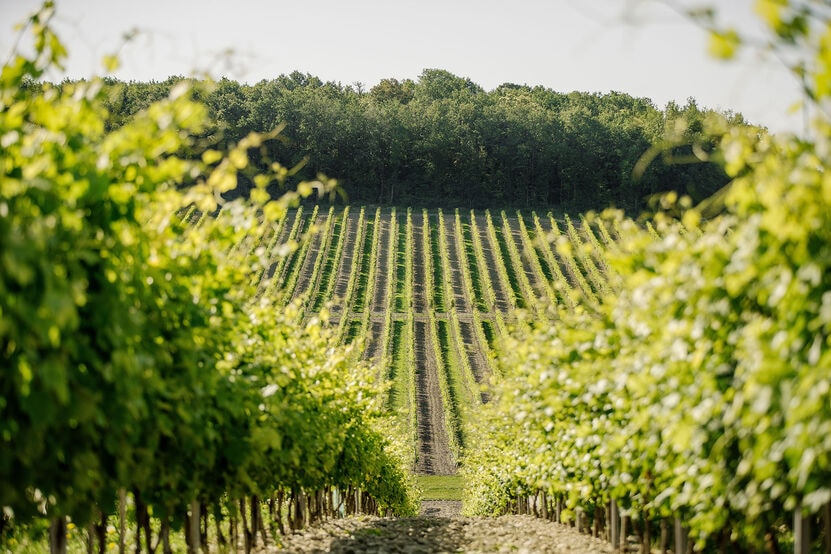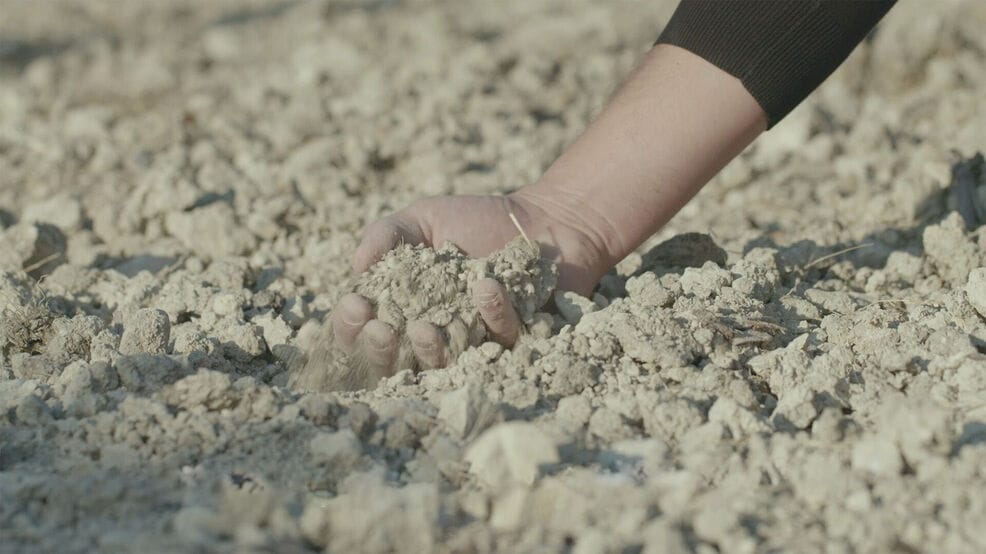Our Terroir: The High Environmental Value approach, act now for future generations
In 1874, Paul-Émile Rémy Martin created the product ‘Grande Champagne Très Vieille Age Inconnu’, which he would go on to rename LOUIS XIII, to highlight the superiority of the Grande Champagne terroir. Ever since that seminal moment, terroir has been the heart of LOUIS XIII; without it, there is no future. It shapes what we do at LOUIS XIII. We therefore live in the knowledge we need to protect it from the threats posed by climate change and intensive agriculture.
Sustainable milestones
The sustainability achievements of LOUIS XIII have to be considered within the framework of the House of Rémy Martin, which officially started on a sustainable path twenty years ago. In these two decades the House has celebrated many sustainable milestones.
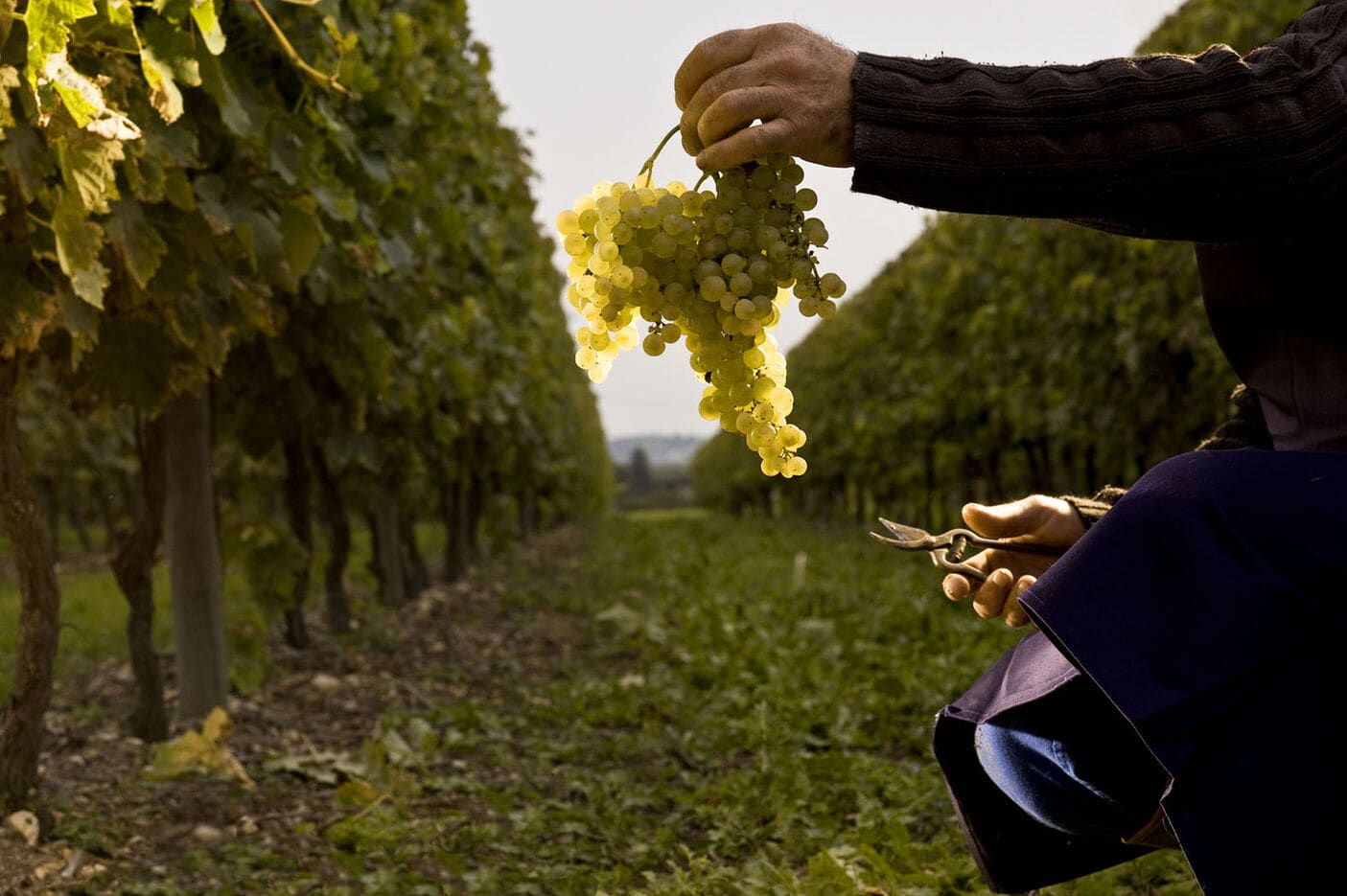
A lifestyle photo of a person holding a bunch of freshly cut green grapes, wineyard in the perspective
Purpose of the HVE
The HVE advocates a holistic approach that spans air, water, soil and plants across four major pillars: the preservation of biodiversity, agricultural water management, crop fertilisation strategies and a reduction of phytosanitary products use. The aim of the HVE is to encourage agricultural practices that are more respectful of the environment, such as the use of green manure, agroforestry and crop diversification. It offers a systemic vision which spans all the crops of a farm and therefore takes biodiversity into consideration.
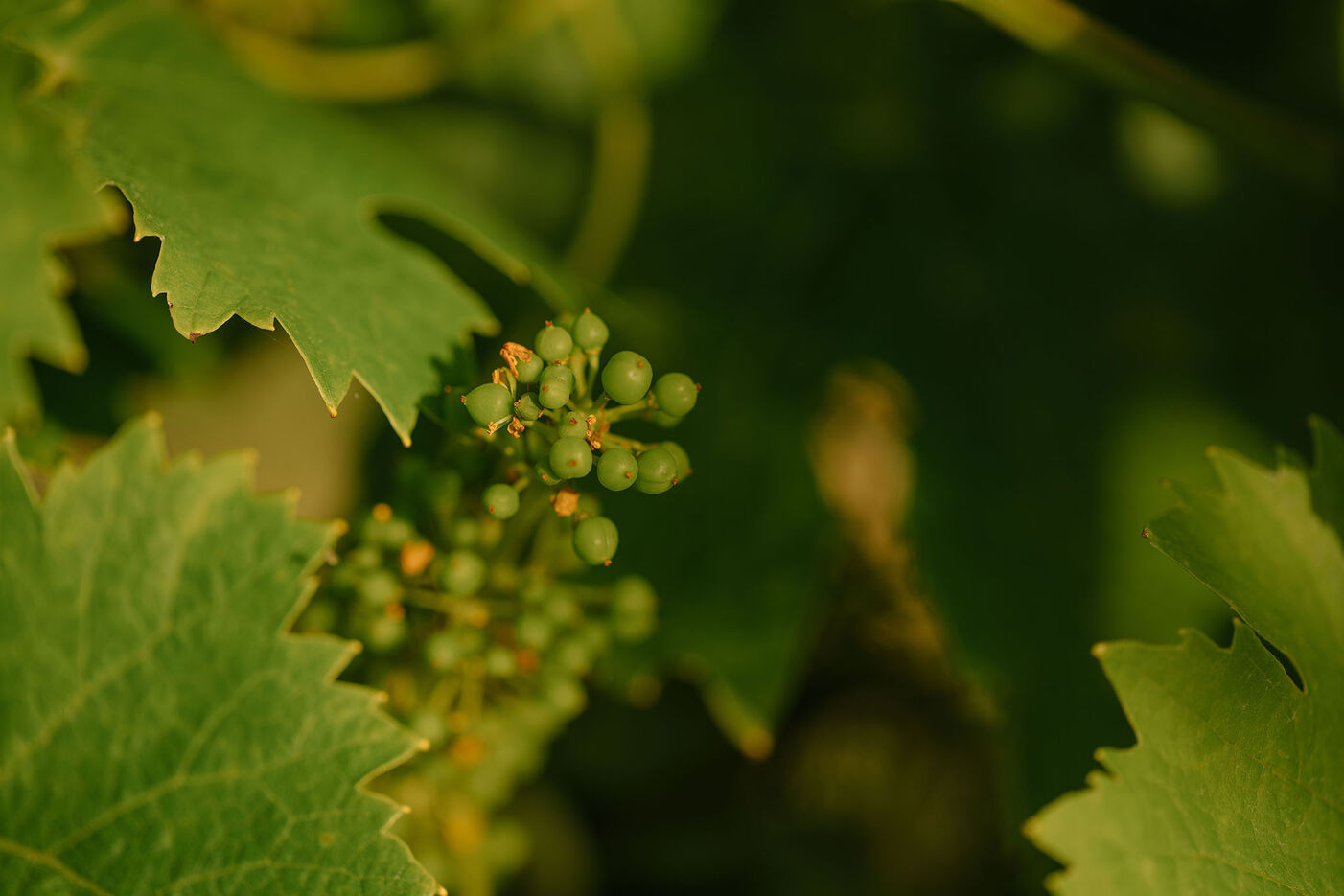
A nature image of small green grapes and green leaves
Our High Environmental Value roadmap
By taking part in the HVE programme, the House of Rémy Martin and the AFC contribute to a healthier, more resilient terroir. There are three levels to the HVE and the HVE certification is awarded to a farm once it reaches the third level of the process.
In 2012, the estates of the House of Rémy Martin were among the first six companies to obtain HVE certification in France and the first in the Cognac industry. The House has continued in this pioneering spirit and is currently ahead in the HVE roadmap it had established with the AFC. Their goal for over 50% of land to be HVE-certified by 2022 was met two years ahead of time, which led the House and the AFC to set two new goals. The first objective is to have 70% of the land surface HVE-certified by 2024; the second objective is to have 100% of winegrowers HVE-certified by 2028.
Our commitment to sustainability
The HVE has led the House of Rémy Martin and the winegrowers of the AFC to question their practices and adopt more environmentally-friendly methods. It requires commitment and a sense of awareness but also a resolve to adapt and learn from one’s mistakes. It’s a continuous process of improvement. In collaboration with the winegrowers of AFC, the House of Rémy Martin explores new technologies and agroecology practices to find the ones that are most suited to the needs of the House of Rémy Martin. Sustainability is the path that leads to excellence; it is the only way to preserve and protect the terroir for the next generation.






